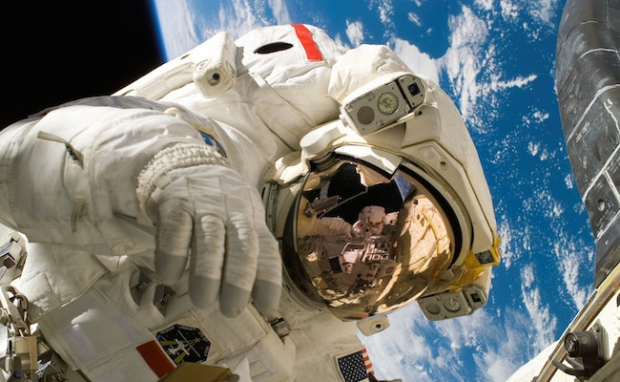NASA streaming app will share the latest space news soon
You’ve heard of “Netflix and Chill,” but are you ready for “NASA and Chill?” The National Aeronautics and Space Administration announced it will launch an on-demand streaming service you can access via mobile app. Soon, everyone worldwide will have access to “new content from the space agency.”
You’ve probably noticed the renewed interest in outer space as billionaires race to colonize and spend a vacation in the stars. Also, the United States government has been sharing more news regarding UFO sightings. If you want to know more about space, “NASA and Chill’ will quench your burning curiosity!
The mobile app could also be a great learning tool for your kids or younger relatives. I will explain the features of the NASA streaming app. Later, I will cover the space agency’s other milestones to give you a preview of the platform’s content.
What is the NASA+ app?
The NASA streaming app’s real name is not “NASA and Chill.” That was just a way to catch your attention. Instead, it is a new streaming platform that will upgrade the existing NASA app.
The platform is NASA+, a no-cost, ad-free, and family-friendly online streaming service that will share the agency’s latest research. These include Emmy Award-winning live NASA mission coverage and new series.
Marc Etkind, NASA’s Office of Communications associate administrator, elaborated on the new streaming platform. “We’re putting space on demand and at your fingertips with NASA’s new streaming platform.”
“Transforming our digital presence will help us better tell the stories of how NASA explores the unknown in air and space, inspires through discovery, and innovates for the benefit of humanity.”
NASA applied new features to its nasa.gov and science.nasa.gov websites, too. The upgrades include a “common search engine, integrated navigation, and optimized publishing capabilities in a modernized and secure set of web tools.”
You may also like: How to create an Apple ID
Jeff Seaton, NASA’s chief information officer, explained why the space agency has improved its online services. “Our vision is to inspire humanity through a unified, world-class NASA web experience.”
“NASA’s legacy footprint presents an opportunity to dramatically improve the user experience for the public we serve. Modernizing our main websites from a technology standpoint and streamlining how the public engages with our content online are critical first steps in making our agency’s information more accessible, discoverable, and secure.”
NASA+ will become available on the NASA app, which you can download on iOS and Android. Also, you can watch it on web browsers and media players like Apple TV, Fire TV, and Roku. Do you want to see what the new NASA website will look like? Check out beta.nasa.gov to see its new look and features.
What are NASA’s latest projects?
The space agency has been developing other projects besides the NASA streaming app. For example, it recently sent its humanoid robot to Western Australia for testing.
NASA designed Valkyrie to perform dull, repetitive, and dangerous tasks during space missions. Before it flies off into space, it must undergo testing in a similar Earth environment.
“NASA plans to leverage experience operating Valkyrie in Woodside’s facilities to learn how to better design robots for work in dirty and hazardous conditions, like those found on the Moon at the long-term worksites and habitats that will be established as part of future Artemis missions,” said the space org.
Valkyrie will inspect infrastructure at the Woodside Energy facility in The Land Down Under, verifying work environments are safe for humans. The energy company will provide data to help NASA improve the robot.
Soon, we might see astronauts investigating Mars with Valkyrie drones. The space agency has also drawn inspiration from the popular AI program, ChatGPT.
Dr. Larissa Suzuki said NASA is developing a ChatGPT-style interface enabling astronauts to speak with their spacecraft. “It’s really not like science fiction anymore,” she claimed.
You may also like: NASA achieves water recovery feat in outer space
“The idea is to get to a point where we have conversational interactions with space vehicles, and they [are] also talking back to us on alerts, interesting findings they see in the solar system and beyond.”
The NASA chatbot would enable astronauts to control spacecraft more efficiently instead of referring to several manuals. Moreover, it will detect glitches and other problems in real-time so space crews can repair them immediately.
It may seem lazy to rely on a robot to check spacecraft. However, outer space is extremely dangerous; spacesuits can only do so much to protect humans.
Conclusion
The NASA streaming app will allow everyone to learn about the latest projects of the space agency. More importantly, it will be available on most devices for free!
The space research organization hasn’t launched the mobile application at the time of writing. Yet, you can check the NASA website’s ongoing online overhaul at beta.nasa.gov.
Do you know where you can learn more about the latest digital tips and trends? Head to Inquirer Tech for the latest in artificial intelligence, space research, and others.
Subscribe to INQUIRER PLUS to get access to The Philippine Daily Inquirer & other 70+ titles, share up to 5 gadgets, listen to the news, download as early as 4am & share articles on social media. Call 896 6000.







